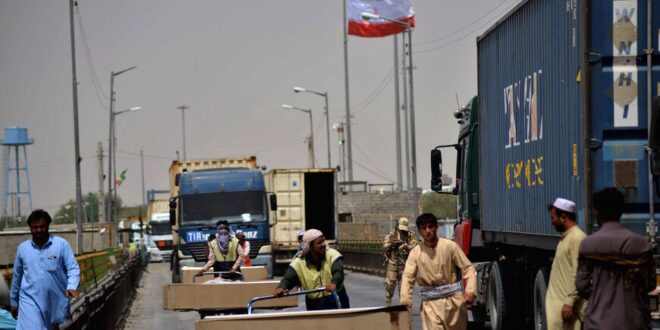At the two ends of Iran’s political spectrum angry voices are being heard in a fierce battle over the ongoing crisis in Afghanistan, and especially the question of support for resistance forces in Panjshir Valley.
Iran’s Reformists woke up to a stinging editorial Sept. 9 by the hard-line daily Kayhan that grilled them over their sympathy for the resistance front in Afghanistan’s Panjshir Valley.
Kayhan, which is affiliated with the office of Supreme Leader Ayatollah Ali Khamenei, challenged the Reformists to come forth and enrol to be deployed to Panjshir if they are serious about such support. Kayhan described the pro-Panjshir camp as “a tiny but raucous” group.
In the wake of the Taliban advance on Panjshir, Iran’s Reformist figures and papers have been sharply criticizing the Islamic Republic for looking the other way and failing the resistance front in the rugged valley.
Kayhan labeled the Reformists as a pro-West group, trying to send the “wrong signal” on Afghanistan and “serving America” in their “desperate push to complete Washington’s jigsaw” in the war-ravaged nation. The ultraconservative paper, as well as other outlets, including Fars News Agency, have in recent months drawn the ire of the Reformists by justifying the rise of the Taliban, arguing that the Sunni group “will not harm” Afghanistan’s Shiite minority.
On the other end of the spectrum, some pro-Reform papers, such as Jomhouri Eslami and Arman-e-Meli, have described the Taliban as a “terrorist” entity, openly challenging the official line of the establishment. “The end of the US occupation of Afghanistan,” according to Jomhouri Eslami, “has ushered in a new era of proxy occupation through the Taliban terrorists.”
In diplomatic and cautious remarks, Iran’s supreme leader and President Ebrahim Raisi have refused to denounce the Taliban. Foreign Minister Hossein Amir Abdollahian expressed hope Sept. 9, that the Taliban will live up to their promises on inclusion and freedoms. Those promises, however, the Reformists have long warned will be ignored. “The curtains will be dropped,” wrote Masih Mohajeri, the centrist cleric, who is also Jomhouri Eslami’s editor. “They will violate all those pledges,” he predicted.
On the streets in Tehran, many Iranians have joined Afghan immigrants in their rallies against the Taliban and what they believe is Pakistan’s military intervention in Panjshir. Holding portraits of the iconic slain Panjshir leader Ahmad Shah Masoud, they have been staging angry demonstrations outside the Pakistani Embassy.
One such rally turned violent Sept. 8, as the participants called on “women in Kabul and Tehran to unite.” Security forces arrested several protesters, including Narges Mohammadi, Pouran Nazemi and Vida Rabbani — all female activists who have expressed concern that the advent of the Taliban will zero out Afghan women’s multiple hard-earned gains.
 Eurasia Press & News
Eurasia Press & News



